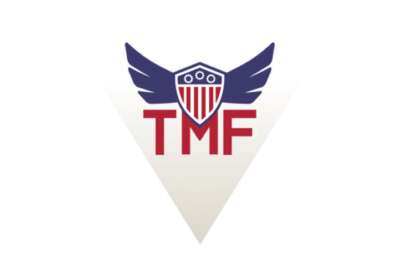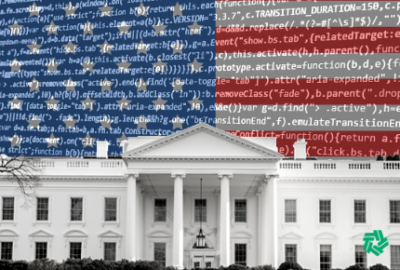TMF Board invests $47M in projects at NASA, Labor
The Technology Modernization Fund handed out more than $47 million to NASA and the Labor Department for cybersecurity and application modernization projects.
NASA won its first award from the Technology Modernization Fund. The Labor Department garnered its sixth in almost six years.
These are the fourth and fifth awards since Jan. 1 and continues the board’s focus on cybersecurity and application modernization.
“It is our responsibility to protect high-priority systems and enable our federal workforce to deliver on their agency’s mission seamlessly and securely,” said Clare Martorana, federal chief information officer and TMF Board chairwoman in a release. “These TMF investments demonstrate the diversity and reach of the TMF in driving innovation and impact forward for the American public — from strengthening NASA spacecraft control to supporting injured and ill workers through DOL’s Office of Workers’ Compensation Programs.”
Labor’s award from the TMF of $42 million is among the larger investments over the last few years.
Labor’s Office of Workers’ Compensation Programs (OWCP) will use the money to accelerate the replacement of its outdated Integrated Federal Employee Compensation System (iFECS).
Currently iFECS is built on technology from 20 years ago and runs 98 different applications with what it calls “elaborate and archaic workflows,” according to the TMF website. “This adds significant friction to case management which can overwhelm claims examiners, delay processing and interrupt tasks.”
In fiscal 2023, the system provided services to more than 2.5 million workers, with over 200,000 new cases processed.
“This initiative aims to revolutionize services and benefits for injured and ill workers, making processes faster, more efficient, and less prone to cybersecurity, operational, and financial risk,” the release from the TMF Board stated. “TMF has allocated $42 million to support this endeavor and aims to overhaul iFECS by transitioning to a modern, cloud-based architecture and leveraging automation technologies. This shift promises to reduce claim adjudication times, enhance customer interactions and bolster data security, particularly crucial given the sensitive nature of federal employee health records and annual claims.”
Labor’s sixth TMF award since 2018
“IFECS services the entire federal government as the processor of all workers’ compensation claims filed by federal workers,” said Nancy Griswold, the deputy director of OWCP, in the release. “As such, improvements in iFECS that will allow for the faster processing of claims will have an impact not only on the claimants themselves, but also their federal employers, as studies have shown that faster payment of claims results in a faster return to work for many claimants.”
Labor’s first award came in 2018 and the department has won a total of more than $77.3 million from the TMF over the last six years.
NASA’s first award is for $5.8 million that will accelerate cybersecurity and operational upgrades to its network. The board said the money will be used for specific initiatives including automating network management, modernizing legacy infrastructure, standardizing network configurations across all NASA locations and collecting additional telemetry data to align with federal cybersecurity mandates.
“NASA’s IT infrastructure plays a critical role in every aspect of NASA’s mission, from enabling collaboration to controlling spacecraft to processing scientific data. Therefore, protecting and effectively evolving NASA’s information technology infrastructure remains a top agency priority,” said Jeff Seaton, the NASA CIO, in the release. “This TMF funding will help the agency to accelerate critical cybersecurity and operational upgrades two years earlier than originally planned.”
NASA’s inspector general highlighted the space agency’s need for additional attention around cybersecurity in its August report on compliance with the Federal Information Security Modernization Act (FISMA).
Auditors said “NASA’s information security program and practices were not effective” in fiscal 2023. The IG made 27 recommendations across the five functional areas: identify, protect, detect, respond and recover. NASA’s overall maturity came in at 2.48 out of 5 for its maturity across the core FISMA metrics and 2.86 out of 5 across the 2023 supplemental metrics.
TMF board has less money in 2024
Along with the awards to Labor and NASA in calendar year 2024, the board made three investments in January worth $70 million for modernization projects at the Justice Department, the General Services Administration and the Armed Forces Retirement Home.
The board continues to allocate funding from the $1 billion it received in the American Rescue Plan Act in 2021. Since that appropriation, the board said it has used that funding to invest in now 43 projects.
It’s unclear how much of the $1 billion the TMF received from the American Rescue Plan Act remains. President Joe Biden’s fiscal 2025 budget request shows about $790 million left in the TMF that is unobligated for 2024, but that also includes money awarded to agencies, but not yet sent out the door.
But going forward, the board faces less available funding as the Senate in the 2024 appropriations rescinded $100 million from the ARPA windfall.
Copyright © 2025 Federal News Network. All rights reserved. This website is not intended for users located within the European Economic Area.
Jason Miller is executive editor of Federal News Network and directs news coverage on the people, policy and programs of the federal government.
Follow @jmillerWFED






